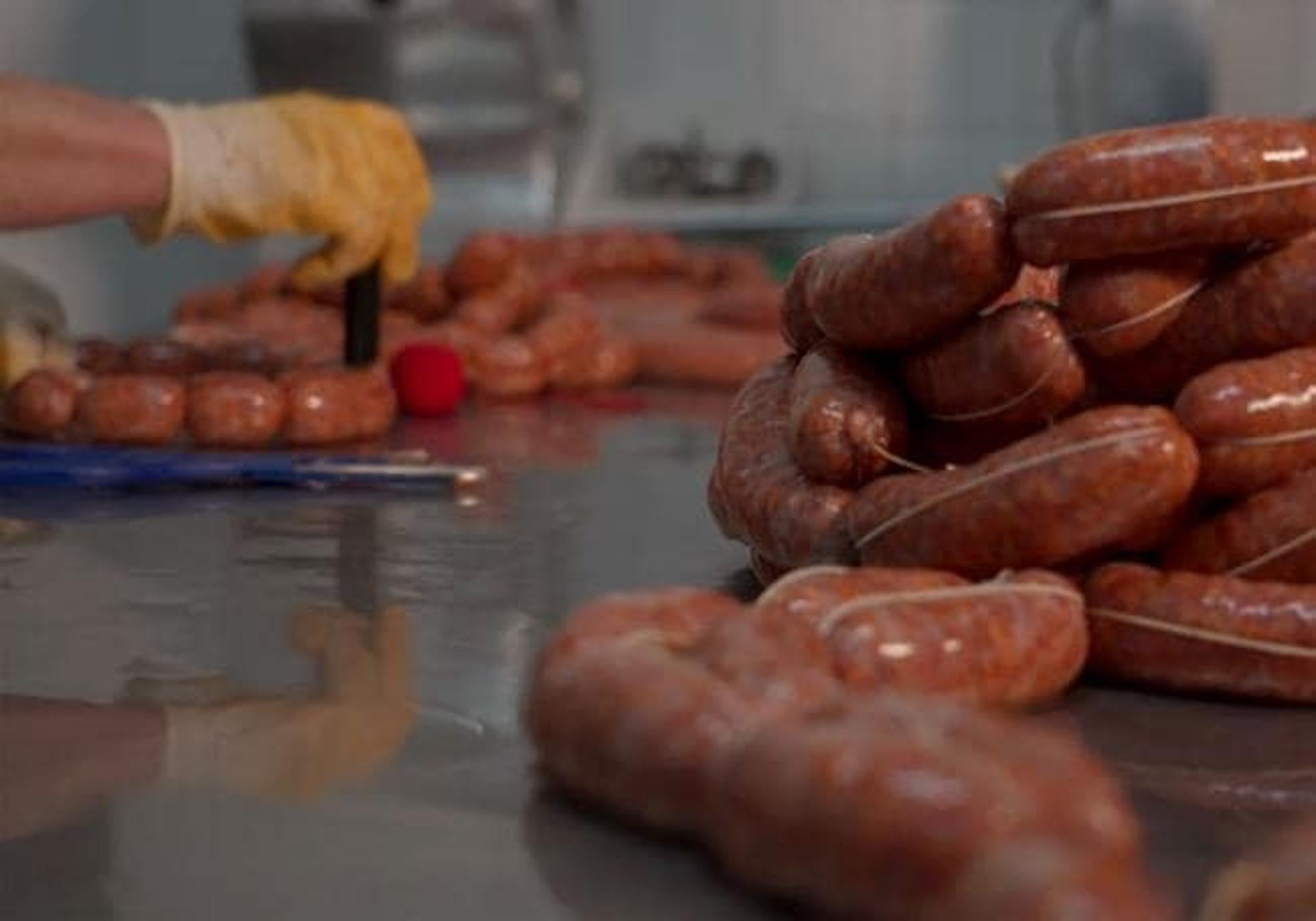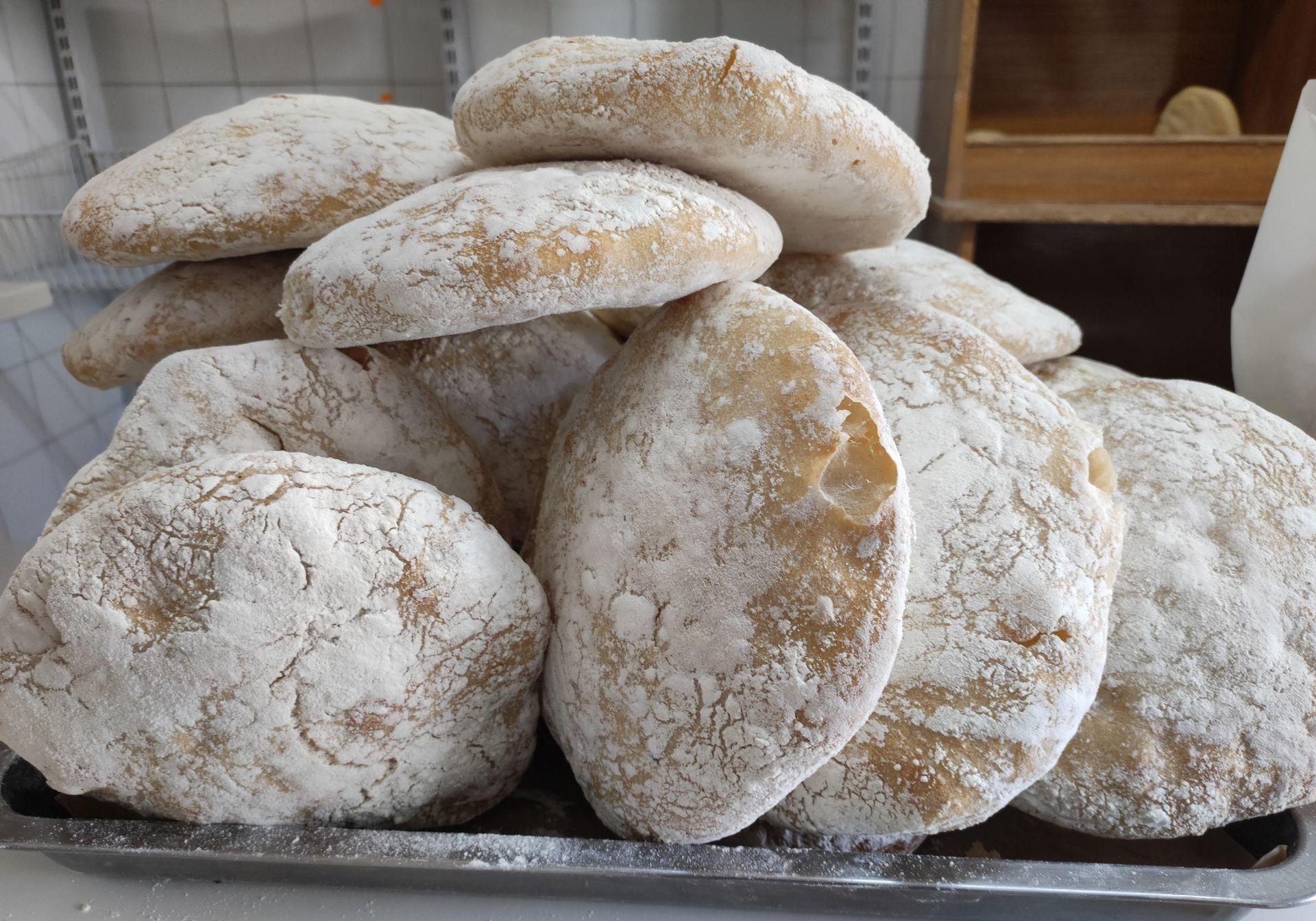

Sections
Highlight

Two caves, the Cueva del Gato and Cueva de la Pileta are two of its main tourist attractions. The geological formations and the cave paintings are the best reasons for visiting them. To these must be added this village's limestone landscapes, the Guadiaro river that flows by and its mountain streams or a stroll through its winding, narrow streets.
Yet, in addition to what nature has bestowed upon it, Benaoján can also boast that it serves up some very traditional, very Andalusian flavours from the food producers located there. This is well known to those who come here every year to buy sausages, hams and other pork products to fill their larders.
From chorizos and sausages made to ancestral recipes to pâtés, zurrapas or sobrasadas (meaty spreads), or even an oven-roasted leg of pork. The current repertoire of companies that have been working for decades in this village satisfies anyone who is looking for variety and quality in their meat.
More than a century ago this village, located at the foot of the Juan Diego mountain range, was already well-known for its cured meats. In those early days there were numerous factories. Nowadays, there are fewer, but those that do exist are especially committed to quality.

Thanks to such an aim a wide range of pork products can be bought in the village. Thus, either in Benaoján Estación that surrounds the train station on the Granada-Algeciras line (Mr Henderson's railway) or in the centre of Benaoján village itself, there are several options to buy directly from those who make these pork products.
These include El Cerdito Andaluz, Icarben and Chacinas Matoso, which are open most of the week, including at weekends in the morning in almost all cases.
There is also the option of consuming their products directly in the village bars and restaurants where there is usually no shortage of local food on offer. From fresh meat dishes to the most traditional cured meats served as a tapa, the visitor will find these local goods present on the menus. As well as the more common cuts of pork such as cheeks, sirloin, 'presa' (the marbled meat cut from the shoulder just below the tenderloin) or 'pluma' (top rump), you can also usually find 'lagarto' (strips of tender, tasty meat cut from just under the spine above the loin and rump). Some places will even serve up pig's trotters prepared in the most traditional style when available.
There are also options for those who come to the village for breakfast, as many bars still offer various spreads on toasted bread: different types of zurrapa, manteca, sobrasada or pâté.
The tasting menu does not stop at pork products though, for in Benaoján there is another great traditional attraction for foodies: bread. Specifically, the village mollete, which is still made today in the most traditional way possible in the Máximo bakery, located in the labyrinth of streets up in the old quarter of Benaoján.

This flat bread roll is known for its size, flavour and texture. However, the element that sets it apart from many others for its quality is the sourdough, which is, as they claim in this bakery, over 100 years old. In fact, it is said to date back to 1912.
This mollete, which can be bought directly from the bakery and elsewhere in the village, is made according to a recipe that is kept safe in the Heras family. Due to the high moisture-content of its dough (known as 'masa madre' (mother's dough), it is also known as mollete de agua (water mollete). This unique feature makes it slightly crunchy on the outside and very spongy on the inside.
Besides the mollete, this bakery also makes another very special pastry that is deeply rooted in this and other nearby villages around Ronda: the 'torta de chicharrones' (pork crackling cake, but actually more like a meaty bread as it uses bread dough). Made with or without sugar, it is a product that combines the quality of this bakery's dough with Benaoján's pork crackling tradition.
For lovers of sweets, there are also some options. The one with the most long-standing tradition in this bakery is the mantecado de aceite de oliva, which is made almost all year round. This sweet, which is sold as one piece, is reminiscent of the classic perrunillas (another, crumbly, biscuity cake) due to its texture. It is also worth asking about the buttered coconut biscuits.
Another important place to go savour the flavours of this village involves going for some tapas in its more traditional bars. There are also good options for lunch. Some of them are as original as El Muelle, an old railway shed converted into a restaurant located right next to Benaoján train station, where there specialise in oven-cooked meat dishes.
Publicidad
Publicidad
Publicidad
Publicidad
Esta funcionalidad es exclusiva para suscriptores.
Reporta un error en esta noticia
Comentar es una ventaja exclusiva para registrados
¿Ya eres registrado?
Inicia sesiónNecesitas ser suscriptor para poder votar.